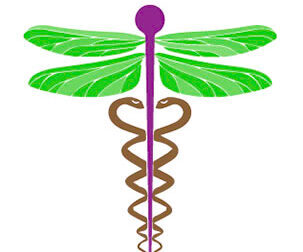Iodine Deficiency and Hormone Balance: Essential Health Connection
Iodine deficiency represents a critical yet often overlooked health concern that significantly impacts hormone balance throughout the body. This essential trace element, discovered in 1811 by French chemist Bernard Courtois, plays a fundamental role in producing all hormones and supporting proper immune system function.
The Critical Role of Iodine in Hormonal Health
Iodine serves as the cornerstone for thyroid hormone production, which regulates metabolism, growth, and development. However, its importance extends far beyond the thyroid gland. Iodine deficiency and hormone balance are intrinsically linked, as this mineral affects hormone production throughout the entire endocrine system. While the thyroid gland contains approximately 70-80% of the body’s iodine, the remainder is distributed to breasts, ovaries, muscles, and blood, where it supports various hormonal functions.
Historical Context and Modern Challenges
The United States began adding iodine to salt in the 1920s to combat deficiency-related diseases. During the 1960s, iodine was also incorporated into baked goods. However, in the 1980s, concerns about excessive iodine intake led to its replacement with bromine in certain foods. This decision inadvertently worsened iodine deficiency problems, as bromine interferes with iodine absorption and binding to cellular receptors.
Geographic and Dietary Risk Factors
Iodine deficiency is particularly common in landlocked areas, especially mountainous regions and continental interiors where populations have limited access to seafood. Ocean-dwelling populations typically maintain adequate iodine levels through fish consumption. The modern Western diet compounds this problem, as it rarely contains sufficient iodine sources.
Current dietary standards may only provide the bare minimum required for basic thyroid function, leaving no additional iodine for other bodily processes. This deficiency is exacerbated by low-salt diets and consumption of bromine-containing baked goods, including ready-to-eat cereals, bread, and pasta.
Breast Health and Hormonal Implications
The connection between iodine deficiency and hormone balance becomes particularly evident in breast health. Adequate iodine levels are essential for developing and maintaining normal breast tissue structure. When deficiency occurs, the breasts and thyroid gland compete for limited iodine supplies, often resulting in inadequate levels for both organs.
This competition creates vulnerability to various health issues, including increased predisposition to breast, endometrial, ovarian, and thyroid cancers. Research has demonstrated that thyroid supplements can decrease breast pain and lumps in patients with normal thyroid function tests, suggesting that subclinical hypothyroidism or iodine deficiency may contribute to fibrocystic breast disease.
Global Dietary Patterns and Cancer Prevention
The Japanese population provides compelling evidence of iodine’s protective effects. Their traditional diet contains significantly higher iodine levels than Western diets, correlating with some of the world’s lowest rates of breast, prostate, and thyroid cancers. This protective effect has only recently begun to diminish as Japanese diets become increasingly Westernized.
Symptoms and Treatment Considerations
Iodine deficiency can manifest through various symptoms affecting hormone balance, including thyroid dysfunction, breast problems, fatigue, and compromised immune function. The good news is that when properly addressed, deficiency symptoms typically resolve rapidly.
However, iodine supplementation requires careful medical supervision and laboratory monitoring. Healthcare practitioners must determine appropriate dosing strategies, as historical debates have ranged from the daily value of 150 mcg to therapeutic doses of 50 mg, highlighting the importance of individualized treatment approaches.
Conclusion
Understanding the relationship between iodine deficiency and hormone balance is crucial for maintaining optimal health. This essential mineral’s role extends far beyond thyroid function, influencing breast health, immune system performance, and cancer prevention. Given the prevalence of deficiency in modern diets and the interference from bromine exposure, individuals should work with healthcare providers to assess their iodine status and develop appropriate supplementation strategies when necessary.
Source: www.womensinternational.com
Read more on how we can help get your hormones healthy here!

